No plain sailing for eco-IP conversion
Despite regulations on management being issued over two years ago that provided clearer definitions of export processing zones, supporting industrial parks (IPs), eco-IPs, and high-tech IPs, many regulations remain confusing to implement when converting one to another.
Currently, the Ministry of Planning and Investment is in the process of consulting on a draft circular guiding Decree No.35/2022/ND-CP, which experimentally applies a set of 23 eco-IP indicators of Vietnam. At the same time, it is moving forward with the development of the Law on Industrial and Economic Zones, which is expected to be implemented in 2025.
According to Giang Ngoc Phuong, deputy general director of Hiep Phuoc IP in Ho Chi Minh City, to be recognised as an eco-IP, businesses in the area have to participate in cleaner production activities and effectively use resources, while cooperating in production to carry out symbiosis activities. But this process has not been easy. “For example, there is no corporate income tax support policy if a business achieves eco-business certification, as well as tax policies for infrastructure companies to encourage them towards getting green certifications,” Phuong said.
According to Phuong, converting from an existing IP is highly complex compared to building one from scratch.
“It is also difficult to mobilise businesses in the IPs to participate in the conversion process, since the majority of them have no experience or knowledge about conversion from traditional to eco-IPs, while there are also many standards set by the international market,” he added.
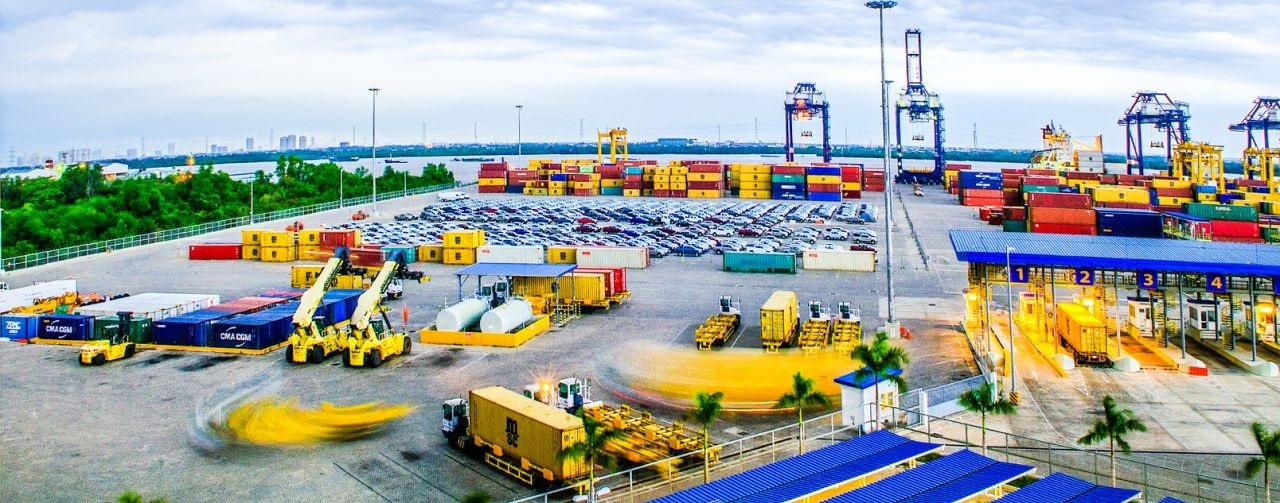 |
| From Hiep Phuoc Industrial Park can connect to the shipping lines, photo hiepphuoc.com |
In Hiep Phuoc IP, many plants’ boiler gas systems are expensive to convert. In addition, symbiosis between businesses has been difficult - when one business uses another’s waste, the two businesses cannot exchange directly but must go through a unit with a waste treatment function, which takes up too much time.
Hiep Phuoc IP was one of five facilities participating in an eco-IP intervention programme in Vietnam funded by the Swiss State Secretariat for Economic Affairs and implemented by the United Nations Industrial Development Organisation, in cooperation with the Ministry of Planning and Investment. It was implemented from May 2020 to April this year, focusing on supportive activities for businesses in industrial zones (IZs) to convert from traditional IZs to eco-IPs.
The other complexes involved were Amata Bien Hoa in Dong Nai province, DEEP C Dinh Vu in Haiphong, Hoa Khanh in Danang, and Tra Noc 1 and 2 in Can Tho.
The results of the programme included over 600 cleaner and resource efficient production solutions. Of those, 217 were adopted by 88 enterprises, savings $2.88 million per year through reducing consumption of energy, resources, and materials, reducing over 8,900 tons of CO2 per year.
Meanwhile, chemical and environmental expert Nguyen Thi Kim Lien said that current policies are lacking financial incentives for businesses to implement industrial symbiosis of renewable energy, while investment procedures for renewable energy projects are still complicated.
“In particular, policies in reuse and recycling of waste are not strong enough to develop the market for recycled products,” Lien said.
In addition, if a business wants to reuse treated wastewater, there are currently no instructions and technical regulations to use this water for watering plants and as input water for businesses, she added.
Dr. Can Van Luc, member of the National Financial and Monetary Policy Advisory Council, said that among more than 415 existing IPs, there are only about a dozen operating towards eco-IPs.
“The remaining parks must be converted. But the processes, rights, and responsibilities of businesses when converting must have a clear roadmap,” Luc said.
“It is necessary to develop a separate legal system applicable to cases of new establishment, or applied to cases of converting old, traditional IPs into eco-IPs,” he suggested. “In particular, there needs to be support in terms of policy, technology, finance, and close connection mechanisms between relevant parties, as well as suitable incentives.”
| Dominik Meichle, chairman, European Chamber of Commerce in Vietnam
One big challenge is that environmental, social, and governance (ESG) factors in Vietnam are not fully developed. While there’s been some progress, it’s still hard for industrial zones (IZs) to figure out how to consistently follow ESG practices. Another difficulty is making sure international standards fit well with Vietnam’s rules. To overcome these challenges, a targeted approach is necessary. The government can help by developing clear rules and rewarding companies for being sustainable. Working together with private companies from other countries can bring in new technology and knowledge to help manage ESG efforts. For setting up an IZ under ESG standards, first, we need to protect the environment. This means cutting down on pollution by treating wastewater, using renewable energy sources, and building eco-friendly infrastructure. Social responsibility is also crucial. IZs should ensure that they provide safe working conditions, equitable employment opportunities, and engage actively with local communities. IZs should operate with transparency and accountability. This involves adhering to regulations, promoting ethical practices, and maintaining open communication with all stakeholders. It is also vital to establish robust ESG reporting systems. Lastly, some continuous improvement is key. Regularly assessing and refining ESG initiatives based on feedback ensures that IZs remain effective and continue to lead in sustainable development. |
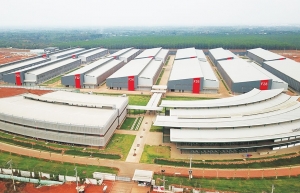 | Private sector urged to enter eco-IP arena Authorities have been urged to foster participation of the private sector to speed up the creation of eco-industrial parks, contributing to the government's green growth strategy. |
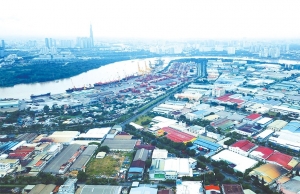 | Vietnam taking stock of industrial park capacities Many localities want to expand high-tech industrial parks to resolve the overload of existing parks and simultaneously welcome new high-quality capital. |
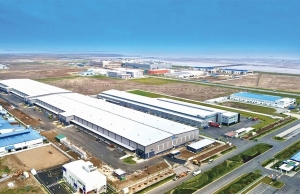 | Nation urged to build on eco-IP model A project on implementing eco-industrial parks in Vietnam has had significant results in terms of building policy institutions, environmental benefits, and socioeconomic development for businesses. |
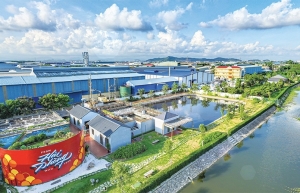 | Financial barriers still remain for true industrial symbiosis Despite having great potential for implementing industrial innovation, Vietnam lacks financial incentives for businesses in executing industrial symbiosis model and preventing them from taping into a circular community. |
What the stars mean:
★ Poor ★ ★ Promising ★★★ Good ★★★★ Very good ★★★★★ Exceptional
Related Contents
Latest News
More News
- Saigon Centre gains LEED platinum and gold certifications (February 12, 2026 | 16:37)
- Construction firms poised for growth on public investment and capital market support (February 11, 2026 | 11:38)
- Mitsubishi acquires Thuan An 1 residential development from PDR (February 09, 2026 | 08:00)
- Frasers Property and GELEX Infrastructure propose new joint venture (February 07, 2026 | 15:00)
- Sun Group led consortium selected as investor for new urban area (February 06, 2026 | 15:20)
- Vietnam breaks into Top 10 countries and regions for LEED outside the US (February 05, 2026 | 17:56)
- Fairmont opens first Vietnam property in Hanoi (February 04, 2026 | 16:09)
- Real estate investment trusts pivotal for long-term success (February 02, 2026 | 11:09)
- Dong Nai experiences shifting expectations and new industrial cycle (January 28, 2026 | 09:00)
- An Phat 5 Industrial Park targets ESG-driven investors in Hai Phong (January 26, 2026 | 08:30)

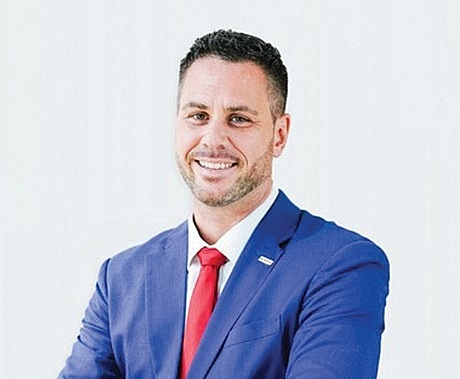
 Tag:
Tag:





















 Mobile Version
Mobile Version